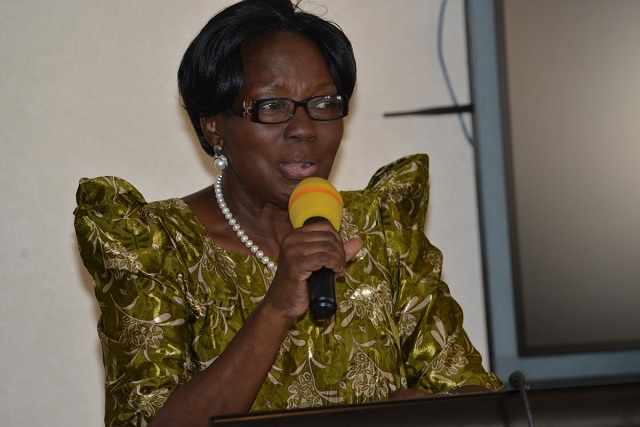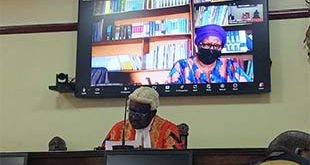
Kampala, Uganda | THE INDEPENDENT | Ministers own companies that are involved in the exportation of domestic workers abroad, the Speaker of Parliament Rebecca Kadaga has said.
The Speaker was on Wednesday officiating at the Anti-slavery workshop at Golden Tulip hotel in Kampala. The workshop was an engagement of different stakeholders about the proposed Anti-Slavery Bill 2018.
Kadaga says that Ugandans travel abroad through formal means and yet they get into modern day slavery. She says unlike in the early days when people were forcefully beaten, chained and shipped abroad, several Ugandans are taken abroad willingly and duped.
Kadaga said that it is unfortunate that companies that export workers abroad are owned by Ministers who have done nothing to fight human trafficking.
Kadaga also faulted Ugandans who go abroad for refusing to associate with the relevant government missions and when they get stuck they cannot be helped.
Kadaga also proposed that labour exportation should be conducted by government as opposed to private companies if cases of human trafficking are to be mitigated.
“One of the things we have demanded from government is that if there must export of labour, it should be government to government” said Kadaga adding that “we need to know where our people are going, we need to know what they are doing, we need to know what their terms of employment are”
Kadaga called on the public to be more vigilant on cases of human trafficking, saying they have become rampant within the country.
According to Kadaga, she recently rescued 5 children who were kept in a house in Nakawa division for 3 months. She says the children were trafficked from Ngora district.
The mover of the Anti-Slavery Bill, 2018, Herbert Edmund Ariko the Soroti Municipality MP highlighted the hot spots of human trafficking within the country saying Karamoja is becoming a key source of either trafficked or enslaved people, while Soroti is becoming more of a holding place and a transit centre and Mbale, Tororo, Busia districts.
The Anti-Slavery Bill 2018, seeks to repeal the Prevention of Trafficking in Persons Act, 2009 and make provision for the prohibition of slavery, servitude and forced or compulsory labour, commercial sexual exploitation, Debt bondage, Human organ trafficking as well as provide for the repatriation and compensation of victims of the offenses under this Act.
More than 100,000 Ugandans are working in the Middle East and other Gulf states. 16,000 Ugandans are for example working in Saudi Arabia according to reports.
******
URN
 The Independent Uganda: You get the Truth we Pay the Price
The Independent Uganda: You get the Truth we Pay the Price


